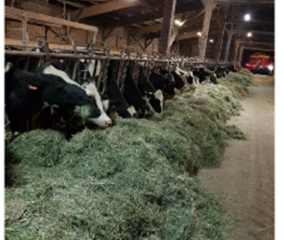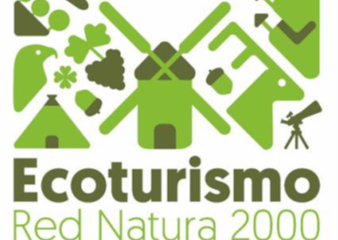ANCHORING
France
Introduction
The re-appropriation of technical solutions requires mastery of know-how. To this end, ANCRAGE aims to strengthen the technical autonomy of local farms by training market gardeners and creating self-built tools adapted to the needs of small market garden areas (less than 1.5 ha cultivated). For many years the number of farms has been decreasing in France. In the Landes, we have seen a 10% decline since 2012. There is a need to renew farms and their models, especially since the intensive and extensive agricultural model does not coincide with agro-ecological needs. In the Landes, many young farms are worked by young peasants, converted professionals or people not from the agricultural world who mostly want to develop production methods that are less impactful for ecosystems and closer to end consumers. The importance of these smaller, more numerous, and sober farms is critical in an environment of uncertainty and systemic risk. It turns out that for this peasant audience, the question of technique and suitable tools is central to the development of local farms. To this end, the ANCHAGE program aims to: – Organize technical training aimed at transmitting welding, mechanical and maintenance skills around the self-construction of tools. – The establishment of participatory research and development through the design of tools adapted to agro-ecological practices – The establishment of an intensive local consultation.
Presentation of the project
For many years the number of farms has been decreasing in France. In the Landes, there has been a 10% decline in farms since 2012. There is a need to renew farms and their models, especially since the intensive and extensive agricultural model does not coincide with agro-ecological needs. In our territory, many young farms are worked by young peasants, converted professionals or people who do not come from the agricultural world. The majority of these people want to develop production methods that are less harmful to ecosystems. The importance of these smaller, more numerous, and sober farms is critical in an environment of uncertainty and systemic risk. For this local peasant audience, the question of technique and suitable tools is central to the development of local farms. Increasing technical autonomy limits the need for indebtedness of farm equipment. So the creation of tools tailored to agro-ecological practices can improve yields on small farms. In response to this problem, the ANCRAGE project is structured around three pillars: – The organization of technical training aimed at transmitting welding, mechanical and maintenance skills around the self-construction of tools which will then be paid to a CUMA. ANCRAGE aims to develop a spin-off process in order to gradually create a technical peasant workshop locally and open to all. – Open research and development through the design of tools adapted to agro-ecological practices. This component includes the participation of a non-exclusively agricultural audience (local knowledge of local citizens, entrepreneurs and artists with specific technical skills). – The establishment of extensive local consultation with my establishment of a multi-stakeholder territorial monitoring committee. – A university research project involving the follow-up of the project. – Technical and general public events aimed at raising public awareness of the challenges of the technical autonomy of farmers. This work, which produces solutions and facilitates dissemination, corresponds to coupled innovation (Meynard, 2017) which aims to act on the local agricultural socio-technical system in an effective way to install the local territory in a dynamic of transition.
2022 Stocktaking:
· 4 training courses offered: – Integrating self-construction into its farm project” – Self-construction of a structure with a chainsaw – 2 training courses Self-construction of agricultural tools 39 trained and 11 realized tools usable on farms.
· 3 functional prototypes: – A quad electric tractor – A vegetable hoe – Recycled battery packs
· 1 tutor project with an agricultural high school
· 1 TiLTER research program with CNRS and the PASSAGES laboratory in Bordeaux
· Concertation and spin-off: – National Third-Site Feeder Day – The three days of peasant technology – Make Third-Site – Agricultural Test Areas – Department – “Spin-off” Group – Peasant Workshop – Third-Site Feeder Sites – Third-Site Cooperative, Fablim – Scientific Committee – Third-Site Cooperative – Registration of the title of peasant technology facilitator in the RNCP – Peasant Workshop Perspectives: – Community Manufacturing Labeling – Recruiting a trainer – Development of a technical assistance service offer on the farm – Leader Building School: LEADER’s role in the project was instrumental in enabling the association to develop and carry out the project. Both on the financing of the post dedicated to the development of the project and on the networking of the actors of the territory. The project was able to benefit from the LAG’s advice during its presentation and made it easier to make it known in the Landes Nature Côte d’Argent LAG.
Emblematic character of the project
The territorial diagnosis of the territory has shown that we have many resources that are not always valued to their full extent. However, it is through these resources that a population takes ownership of its territory and thus contributes to its attractiveness. This strategic orientation of the LAG LEADER strategy aimed to finance the development of agricultural resources through the structuring and development of short and food-related circuits. The first challenge is to move towards a territorial food strategy by introducing local and/or organic products into the catering sector and private individuals. The second is economic because it allows a certain diversification of agricultural activities in the territory. In this context, the ANCRAGE project was spearheaded by the direct lifts of the farmers of the Landes Nature Côte d’Argent territory. Innovation is present in several aspects of the project: – The prospects for agricultural development follow a technicist model that is fundamentally geared towards rationalization of tasks and digital tools. However, this technique deprives the operators of their autonomy in the culture (tools too complex). Thus with ANCRAGE we innovate by developing local farms with simple and effective tools that can be controlled by the operators and therefore easier to maintain, repairable and adaptable. – Open R&D sessions accompanying citizen innovation. The Smalah means by this to value what the inhabitants know, especially the elders. The specific local knowledge is then used to create tools locally; the first being an upcycled quad tractor. In these sessions we focus on the recovery of used material and sobriety. Civic R&D sessions thus enable knowledge production locally outside private consultancy firms. This project can easily be transferred to other interested LAGs. Indeed, all the tools developed have plans distributed freely and the association ensures the widest possible dissemination of the action plan, the governance and the levers mobilized. Finally, videos present the different workshops and self-built tools.
Pictures



Videos : https://www.youtube.com/watch?v=zQg2mbN9kK8
balance sheet : https://uploadsssl.webflow.com/60ba01dd7e8d7b1ee71e0f2d/6385e4622454493e5a012dd6_Pr%C3%A9se ntation%20C.S%20Ancrage%20(2).pdf
Website : https://www.la-smalah.fr
La Smalah
Landes Nature Côte d’Argent
Nouvelle-Aquitaine

